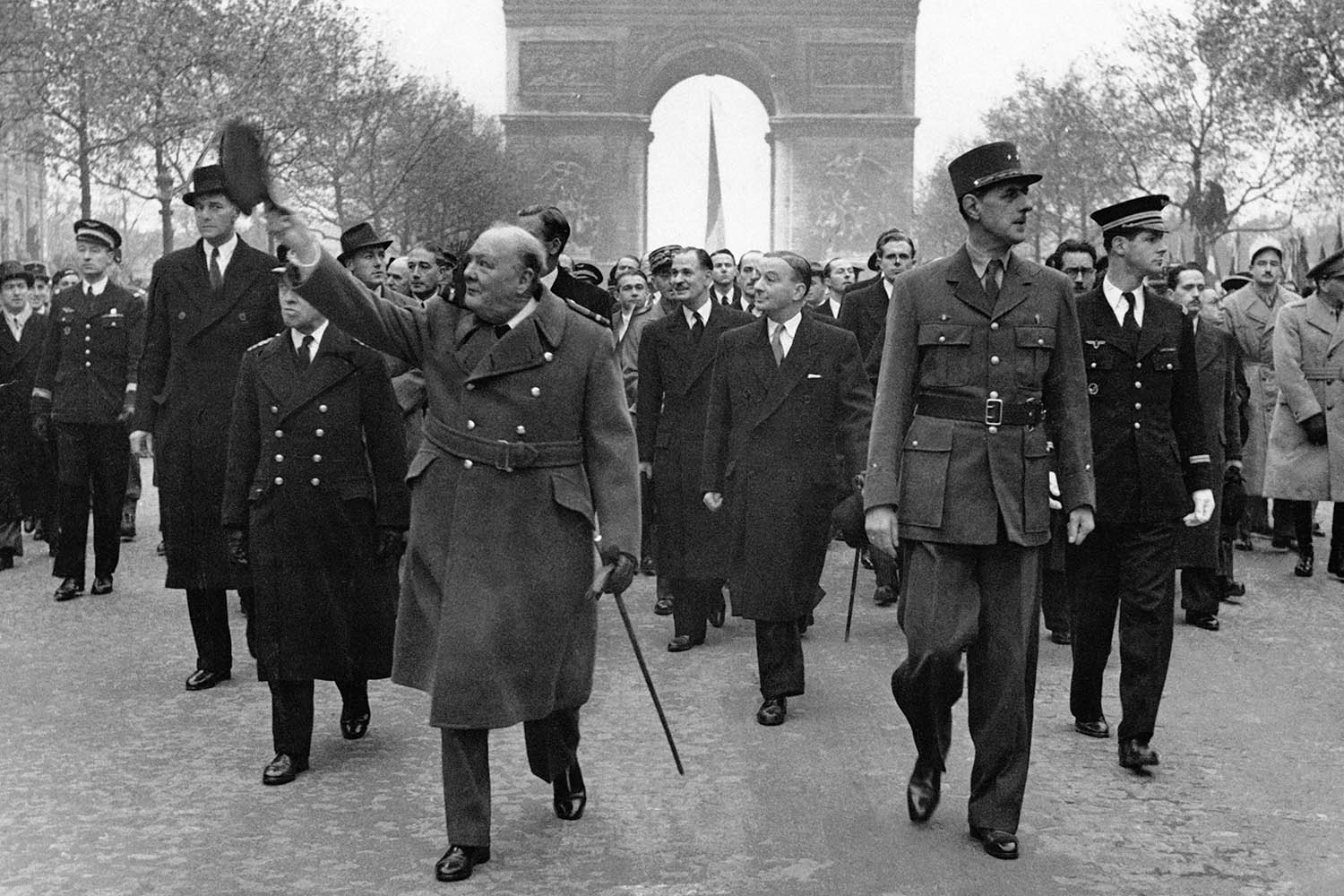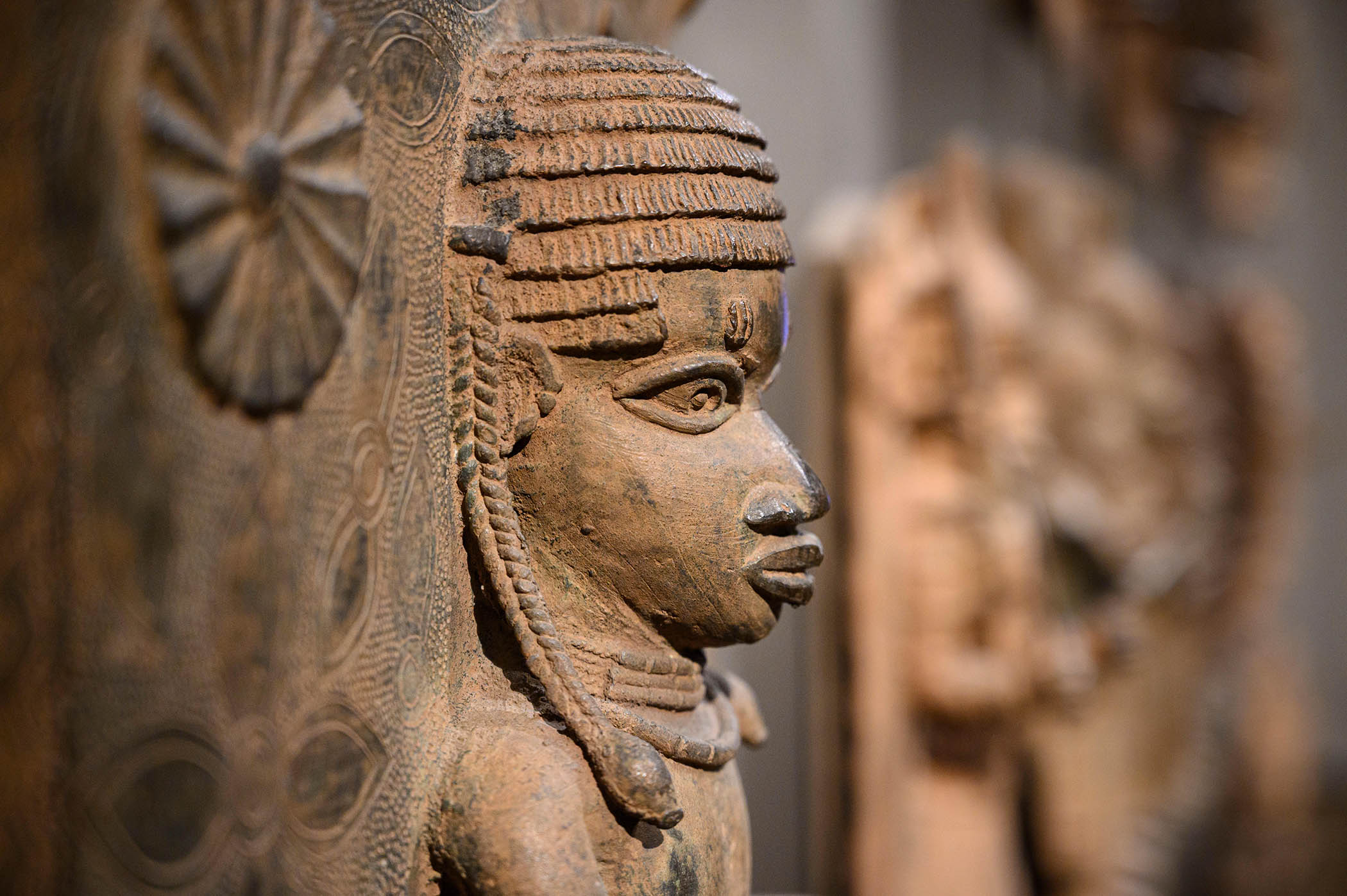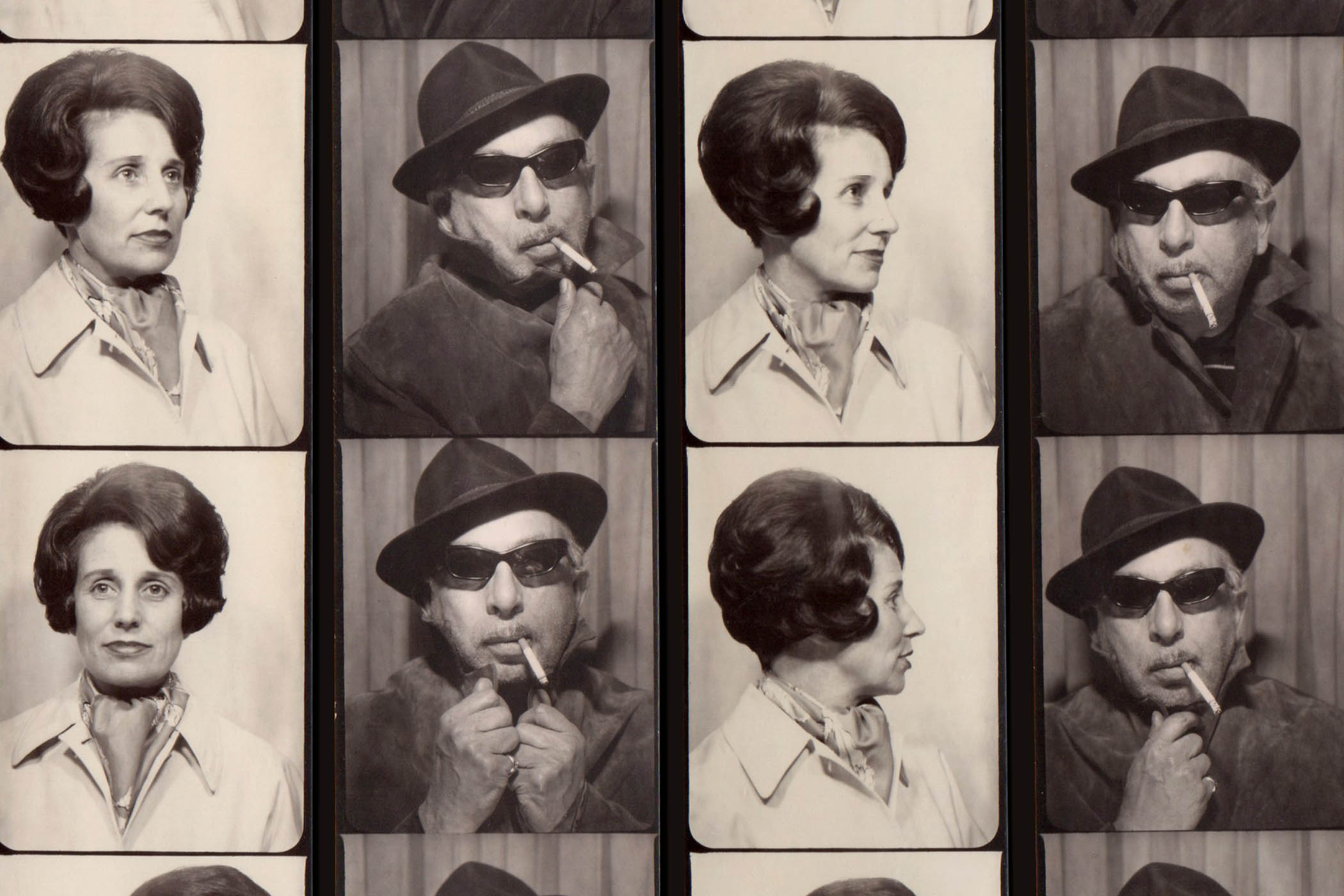“Without him,” said Winston Churchill’s chief military adviser Alan Brooke of the prime minister during the second World War, “England was lost for a certainty; with him England has been on the verge of disaster time and again.” The reaction of many of the British, including Churchill himself, to Charles de Gaulle was similar. “My cross of Lorraine,” Churchill is said to have joked, but he had to accept that there was no one else who could speak to the French like De Gaulle.
Given the vast amount that has been written on the war and Churchill, including monographs on his dinners and his pets, there is surprisingly little on his relationship with De Gaulle. True, as De Gaulle himself understood, the prime minister’s dealings with US president Franklin Delano Roosevelt or Russia’s Joseph Stalin were paramount for Churchill, but the relationship between France and Britain mattered then and in the postwar years. They were neighbours, trading partners, allies, as well as rivals in the Middle East and for the leadership of Europe.
Following François Kersaudy’s 1981 study of Churchill and De Gaulle, we now have The Last Titans by the historian Richard Vinen. He draws the two men with a sure touch, their personal interactions a mix of mutual suspicion and admiration. One of the many pleasures of Vinen’s highly readable book are his off-hand judgments – De Gaulle’s memoirs were “true, if not accurate” – and his keen eye for detail: De Gaulle horrifying his aides by giving up cigarettes for chewing gum, or Churchill turning somersaults in his bathtub.
Both of Vinen’s titans, as their weary subordinates and allies often complained, were difficult, obsessive, selfish, wilful and ruthless. They demanded loyalty but did not find it necessary to return it. For Churchill, the struggle against Germany was an ideological one; he loathed Nazism even more than Bolshevism. De Gaulle saw it rather as a continuation of the first world war against Germany the country. Both men expected their people to sacrifice their lives in the struggle and were prepared to do so themselves. Churchill showed more emotion at the inevitable losses, while De Gaulle accepted them coolly, as a necessary cost of war. When he was once presented with a caviar-stuffed sturgeon on a visit to the Soviet Union in 1966, he said “Il y a toujours des victimes.” He did not glorify war but accepted it as an inevitable part of human affairs. Churchill retained something of the Boys’ Own view, in which wars were glorious adventures full of daring deeds. During the second world war, he often pressed reckless and impossible plans on his generals, to make bold attacks on the enemy. De Gaulle remained aloof from his military, ignoring his nominal superiors and leaving his subordinates to make their own strategic and tactical decisions.
Both men approved of religion without apparently being religious themselves: Churchill saying he was more a “flying buttress” to the church – giving support from the outside – while De Gaulle was visibly bored when he went to mass. Both loved their countries but in ways that were often at odds with reality. Churchill imagined an England (and it was England for him, not Britain) of happy peasants living in their neat cottages and cared for by benevolent squires. When he had to visit working class slums or lower middle class suburbs he found them highly distasteful. De Gaulle appealed not to the existing France but to, as he said, “a certain idea” that drew on the glories of the past. Indeed, he worried that his fellow citizens were not worthy of his France; they might opt for comfort and become “hairdressers and cooks”. Christopher Soames, Churchill’s son-in-law, wrote just after De Gaulle died that he secretly admitted to himself that the French would never meet his standards: “He was also truly a great pessimist, the last Cassandra of our times.” Even though Churchill had his “black dog” moments of despair and depression, at heart he remained an optimist.
In this and much else, the differences between the two men far outweighed their similarities. De Gaulle came from a minor noble family in the provinces; Churchill from one of the great British aristocratic clans. Where De Gaulle’s family and their circle regretted that the French Revolution had taken place, Churchill, following in the footsteps of his father, Randolph, embraced parliamentary democracy. Even though he was not a rich man, Churchill lived in lavish upper-class style. De Gaulle always kept within his means, largely indifferent to his comfort. When he was president of France, he insisted on paying for the cakes his grandchildren ate when they came to the Élysée palace. Churchill was happy to accept extravagant presents from rich friends, and, when he completed his history of the second World War, managed to wangle himself a very favourable tax deal from the government. De Gaulle was shocked that he chose to serialise the history. “Can you imagine,” he said, “being published in little pieces.” De Gaulle gave any money he made from his own memoirs to a foundation in memory of his disabled daughter, Anne.
Churchill loved to have people about him and lived largely in public, sharing his thoughts with whoever was near. De Gaulle was a loner, close to only a few. Otherwise, he had, said one leader of the resistance, “immense contempt for humanity”. One could imagine De Gaulle in a play by Molière or Racine (but never as a comic hero), with every gesture planned and every word carefully enunciated. Churchill could have played both tragedy and comedy. He was spontaneous, funny and unpredictable. Unlike De Gaulle, he did not care about his own dignity. He would summon his staff to the side of his tub as he lay in one of his frequent baths. De Gaulle was always formally dressed when he received people, even close aides, and tended to refer to himself in the third person. Vinen sees Churchill as Falstaff in Shakespeare’s Henry V, while De Gaulle is closer to the calculating young prince who cuts his old friend loose for reasons of state without a qualm.
Yet, for all their quirks and faults, the fate of their countries and the history of the 20th century would have been very different without them. De Gaulle restored France’s honour after its collapse in 1940, brought unity to a badly fractured society after it was liberated in 1944, and may well have saved it from civil war in the late 1950s and early 1960s over the Algerian question.
Both Churchill and De Gaulle were difficult, obsessive, selfish, wilful and ruthless
Both Churchill and De Gaulle were difficult, obsessive, selfish, wilful and ruthless
In June 1940, when it seemed a German invasion of Britain was imminent, Churchill dismissed calls for a compromise peace and pledged that Britain and its empire would fight on alone. And they did, until the United States entered the war at the end of 1941.
Churchill’s relationships with Stalin and Roosevelt were challenging in their own ways, but it was the one with De Gaulle that enraged him the most. Kersaudy described it as “la mésentente cordiale” – the friendly disagreement – but, as Vinen points out, it was sometimes not very friendly at all. As an exile in London, De Gaulle was in a very weak position, disowned by the Vichy government and dependent on the British for subsistence. Churchill initially hedged his bets by keeping in contact both with Vichy and De Gaulle’s rivals. “Too weak” to compromise, as De Gaulle later said, the Frenchman fought for his country’s dignity in every way he could – including by insulting and defying his hosts. He made dreadful scenes, for example in the summer of 1944 when the British only told him at the last minute about the D-day landings. Some concluded he was mad, but as an acute British adviser noted, De Gaulle’s behaviour – which, on occasion, involved charm too – had a purpose which he often achieved.
Newsletters
Choose the newsletters you want to receive
View more
For information about how The Observer protects your data, read our Privacy Policy
Step by difficult step, De Gaulle managed to bring the different resistance groups under his leadership and eliminate his rivals. When the British finally allowed him to return to France after D-day, he rapidly established himself as the head of France’s new government. In August, he made a triumphal entry into Paris, where he declared, wrongly, that Paris had liberated itself. It was part of his myth-making that was to paper over the differences among the French. In the subsequent months, he and his government established order in the face of great odds. And then, suddenly, at the start of 1946, he resigned as head of the government, despite having strong support in the country and the new assembly. No one was ever quite sure why he did it – a distaste for politics perhaps? – but he withdrew from public life until he was summoned back, on terms that suited him, as the powerful president of the new Fifth Republic.
Churchill, unlike De Gaulle after the war, badly wanted to remain in politics. In 1951, he once more succeeded in becoming prime minister. It was not clear, as Vinen points out, what Churchill wanted to do in power. He was bored by domestic issues and struggled to keep up with his work as his capacity declined. In 1955, he finally retired, but lingered on in poor health until 1965. He had a great state funeral, which he had planned himself. De Gaulle, who was 16 years younger, remained president until 1969 and died the following year. His funeral was very small and ostentatiously plain. In death, as in life, the two men took their own paths.
The Last Titans: Churchill and De Gaulle by Richard Vinen is published by Bloomsbury (£25). Order a copy from The Observer Shop for £22.50. Delivery charges may apply
Photograph by Keystone-France/Gamma-Rapho via Getty


